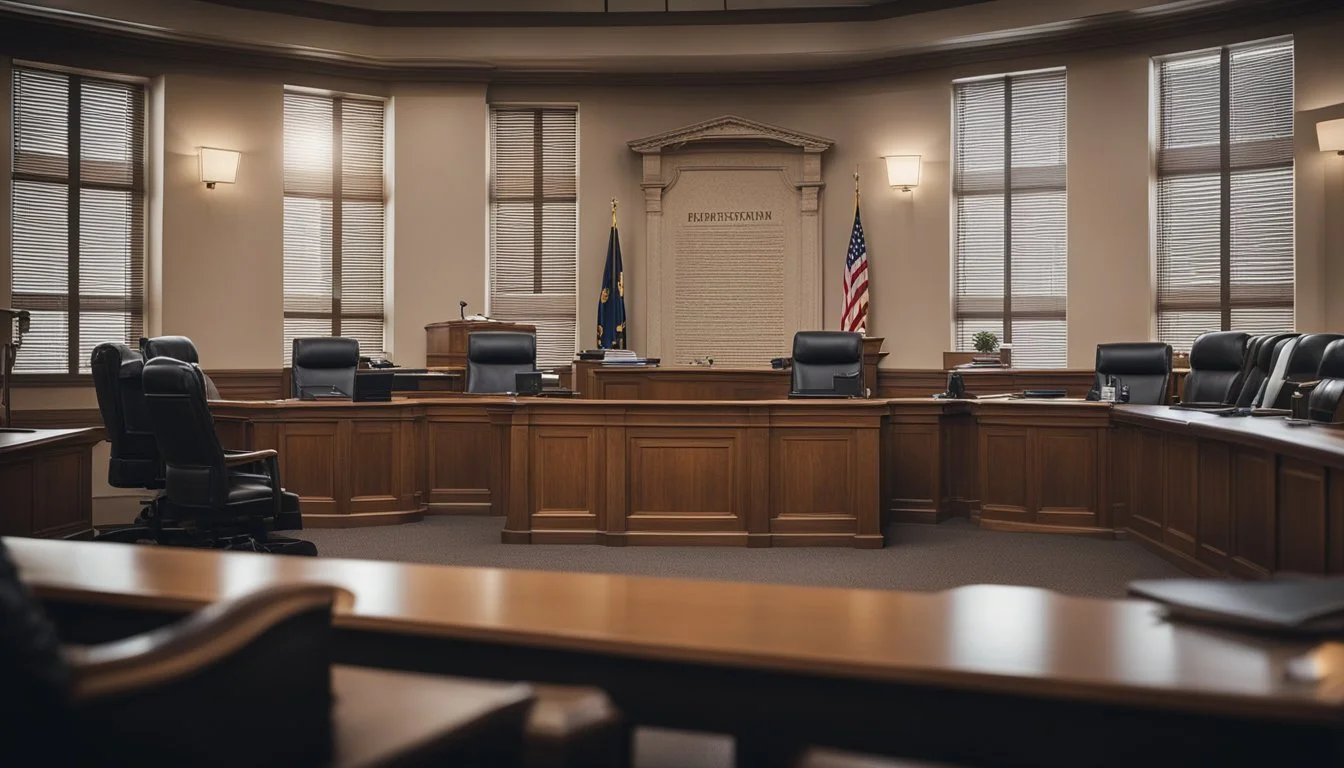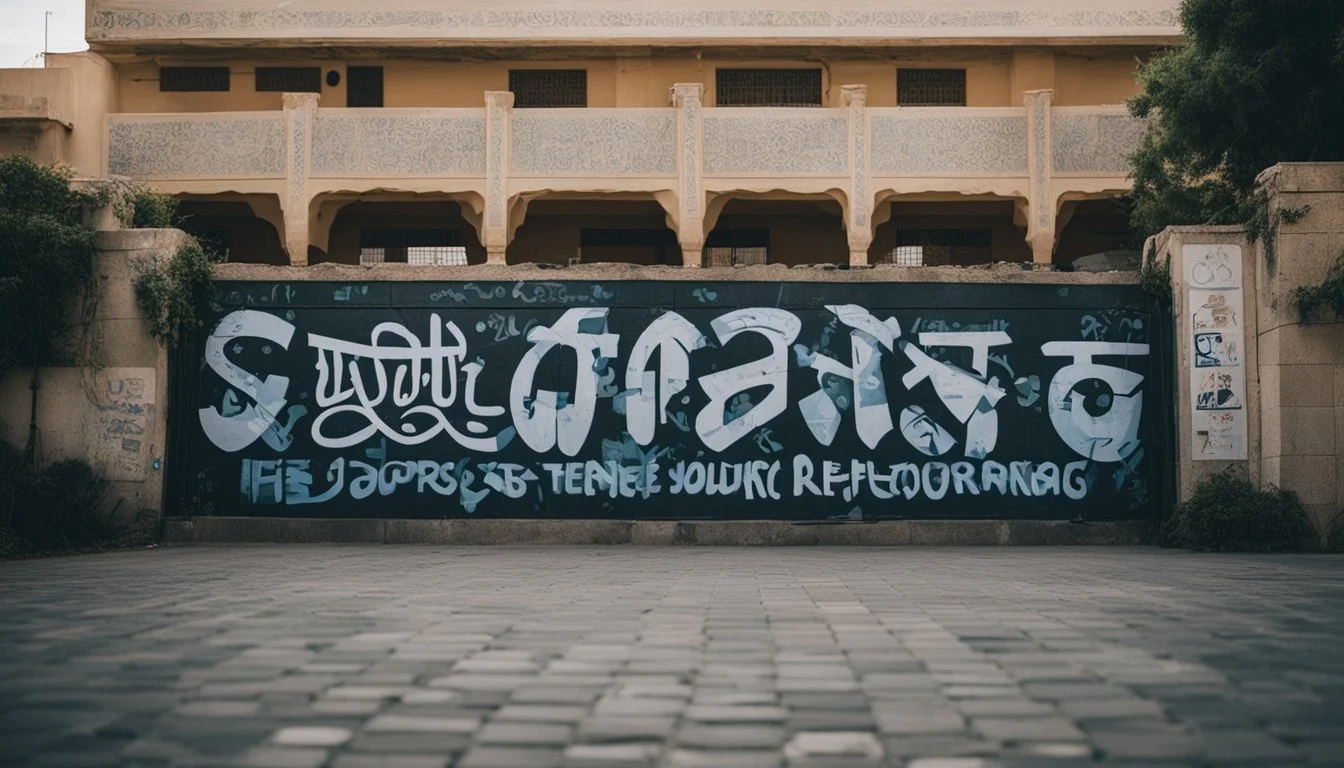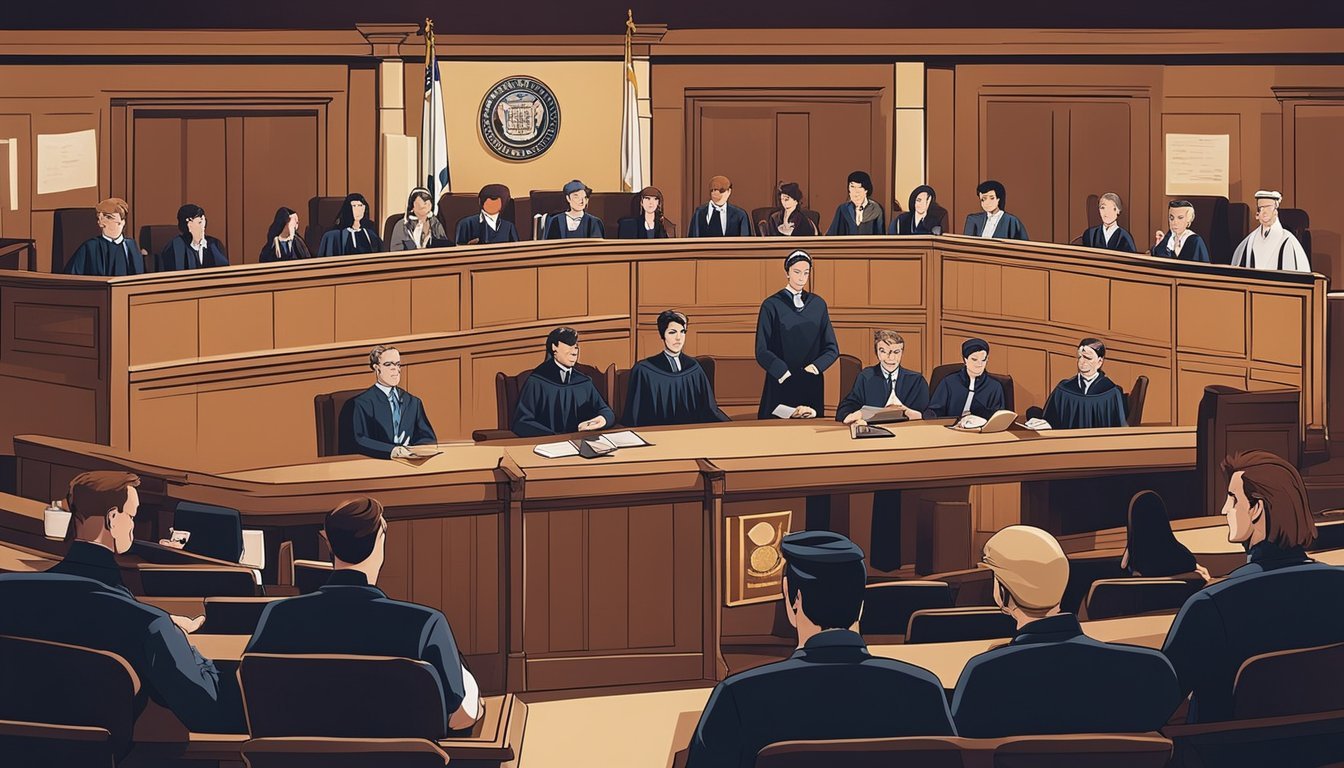7 True Crime Documentaries About Hate Crimes Against Muslims
Exploring Real Stories
Documentaries about hate crimes serve an essential purpose in raising awareness and promoting understanding of these serious issues. Recently, there has been an increase in productions that focus on hate crimes against Muslims, addressing the painful reality many communities face.
These documentaries provide valuable insights into the motivations behind hate crimes and the impact on victims and their families. Through personal stories and expert analysis, viewers gain a deeper understanding of the challenges and dangers that Muslims in various societies encounter.
1) 'Remembering Jameel': The Story of Jameel McGee (2023)
'Remembering Jameel' sheds light on Jameel McGee's wrongful conviction and subsequent journey towards forgiveness. In 2005, McGee was falsely accused of drug dealing by Officer Andrew Collins in Benton Harbor. This led to McGee's imprisonment for a crime he did not commit.
The documentary captures the emotional toll of McGee's ordeal, highlighting the deep-seated racial tensions in Benton Harbor. Despite his unjust incarceration, McGee's story took an unexpected turn when he chose to forgive Collins.
The narrative focuses not only on the miscarriage of justice but also on the themes of reconciliation and healing. It illustrates the complex dynamics of race, authority, and personal transformation.
For more on 'Remembering Jameel', visit the IMDb page.
2) 'A Mosque Under Attack': A Harrowing Night
'A Mosque Under Attack' (2022) captures the chilling events of a hate-filled night that forever changed a community.
On a quiet evening, the local mosque became the target of an arson attack. The documentary details how the perpetrators, fueled by animosity, executed their plan.
The film examines the immediate chaos and fear experienced by the mosque-goers. Firsthand accounts from the victims provide a heart-wrenching perspective on the terror inflicted.
Interviews with law enforcement reveal the subsequent investigation and the challenges faced in identifying the culprits. The film does not shy away from depicting the ripple effect on the Muslim community, shedding light on the trauma and resilience in dealing with this egregious hate crime.
For more details, visit IMDB.
3) 'Stand Up for Justice': The Qasim Khan Case
'Stand Up for Justice: The Qasim Khan Case' (2022) takes a close look at the hate crime against Qasim Khan, a young Muslim man targeted in a brutal attack. This documentary highlights the challenges faced by Muslim communities in the wake of growing Islamophobia.
The film provides a detailed account of the events leading up to the attack. It includes testimonies from family members, friends, and community leaders.
The legal proceedings against the perpetrators are meticulously covered, showcasing the community's fight for justice. It also addresses the broader context of anti-Muslim sentiments prevalent in society.
Through interviews with activists and experts, the film explores both the personal and societal impact of the crime. The documentary aims to educate viewers about the consequences of hate and the importance of solidarity.
For more information, visit the IMDb page.
4) 'Fighting Bigotry': Sarah's Brave Journey
'Fighting Bigotry: Sarah's Brave Journey' (2023) tells the powerful story of Sarah Ahmed, a Muslim woman who faced severe hate crimes in her community.
Sarah, an outspoken advocate, decided to document her experiences to raise awareness about the growing issue of Islamophobia.
The documentary touches on Sarah's daily life, showing the challenges she faces and her unwavering commitment to confront prejudice.
Viewers are taken into moments where Sarah engages in community activities, speaking out against ignorance and working to build bridges.
The film also highlights the emotional impact on Sarah and her family, offering a personal perspective on the consequences of hate crimes.
Sarah's courage serves as an inspiration, demonstrating how one individual's bravery can influence change and foster understanding.
The raw and honest portrayal of her journey illustrates the persistence needed to combat bigotry and offers hope for a more inclusive society.
More about 'Fighting Bigotry: Sarah's Brave Journey' (2023) on IMDB.
5) 'Targeted for Faith': The Sami Malik Tragedy (2022)
'Targeted for Faith: The Sami Malik Tragedy' meticulously examines the 2016 murder of Sami Malik, a Pakistani-American student in Houston, Texas. This documentary highlights the hate crime that shook the local Muslim community and brought national attention to issues of religious intolerance.
Through interviews with family members, friends, and community leaders, the film showcases the impact of Malik's death. His family recalls his aspirations, his dedication to his faith, and the tragic day he was targeted for his religious beliefs.
The filmmakers also explore broader themes of anti-Muslim sentiment in America. They use Malik's story as a lens to discuss the rise in hate crimes against Muslims, especially in the years following 9/11 and during heightened political rhetoric.
By including real footage and emotional testimonials, 'Targeted for Faith' provides a poignant, factual recount of the Sami Malik case. It serves as a reminder of the devastating effects of hatred and the ongoing fight for religious tolerance.
For more information on 'Targeted for Faith: The Sami Malik Tragedy', visit IMDb.
6) 'Uncovering Hatred': The Aamir Investigation (2022)
'Uncovering Hatred: The Aamir Investigation' dives into the harrowing case of Aamir, a young Muslim man targeted by hate-fueled violence. The documentary meticulously examines the events leading up to the attack, presenting interviews with Aamir's family and friends.
It also features dialogue with law enforcement officials, shedding light on investigative challenges and community responses to the crime. A significant portion of the film is dedicated to discussing systemic issues, including how hate crimes against Muslims are tracked and reported by agencies like the FBI.
The documentary skillfully uses a mix of archival footage and personal testimonies to illustrate the emotional and societal impact of such hate crimes. Viewers gain insight into the broader pattern of anti-Muslim sentiment in the post-9/11 era.
The filmmakers' thorough approach ensures that the narrative remains both compelling and informative, offering a sobering look at the realities faced by Muslim communities in contemporary society.
For more information on 'Uncovering Hatred: The Aamir Investigation,' visit IMDb.
7) 'Betrayed by Neighbors': The Farid Experience (2022)
'Betrayed by Neighbors' tells the harrowing story of Farid, a young Muslim man living in a quiet neighborhood. His idyllic life turns into a nightmare when he becomes the target of a hate crime by locals he once trusted. The documentary illustrates the devastating impacts of prejudice and betrayal within supposedly safe communities.
The film delves into Farid's personal experiences, including his struggle with isolation and fear. It captures his journey to seek justice and the support he gains from advocacy groups. Through interviews with Farid and those close to him, viewers get an intimate look at the emotional toll of such events.
The documentary's raw and unfiltered footage serves to educate viewers on the broader issue of hate crimes against Muslims. 'Betrayed by Neighbors' provides an essential perspective on the insidious nature of hate that can exist even in seemingly welcoming environments.
More about 'Betrayed by Neighbors'
Understanding Hate Crimes
Hate crimes are intentional acts of hostility and violence directed towards individuals based on their identity. They reflect deep-seated prejudices and aim to oppress and terrorize marginalized groups.
Definition and Types
Hate crimes encompass criminal acts motivated by bias against characteristics such as race, religion, ethnicity, sexual orientation, gender identity, or disability. These crimes can involve violence, threats, harassment, property damage, or graffiti intended to intimidate or demean.
Types of hate crimes include:
Violent Attacks: Physical assaults, murders, and beatings.
Intimidation: Threats and scare tactics designed to instill fear.
Vandalism: Destruction or defacement of property, including religious or cultural sites.
Cyberbullying: Online harassment targeting specific communities.
The intent behind these crimes is to send a message of exclusion and hatred towards the targeted community.
Historical Context
Hate crimes against certain groups have historical roots and often surge during periods of social or political tension. For example, following the September 11 attacks, there was a nationwide spike in hate crimes against Muslims in the United States.
Key historical periods:
Post-9/11: Increased incidents against Muslims, reflecting societal backlash and stereotyping.
Civil Rights Era: Numerous hate crimes targeting African Americans amidst the struggle for racial equality.
Holocaust: Systematic genocide and atrocities committed against Jews.
These historical contexts illustrate how hate crimes often escalate in response to triggering events or societal changes, perpetuating cycles of violence and discrimination.
Impact on the Muslim Community
The rise in hate crimes against Muslims has deeply affected their daily lives, leading to significant psychological and social repercussions. These impacts are felt both at an individual level and within the broader community.
Psychological Effects
The constant threat of hate crimes has instilled a sense of fear and vulnerability among many Muslims. Individuals often experience heightened anxiety, depression, and other mental health issues due to the persistent danger and discrimination they face.
Many report feeling isolated, being hyper-vigilant, and experiencing symptoms of post-traumatic stress disorder (PTSD). Children and teenagers, in particular, are susceptible to long-term psychological effects, impacting their academic performance and social development. This pervasive fear alters their behavior and mindset, affecting their overall well-being.
Social and Cultural Consequences
The heightened scrutiny and discrimination have significant social implications for the Muslim community. Many Muslims feel compelled to alter their cultural and religious expressions to avoid drawing unwanted attention.
Community cohesion is also impacted as trust in law enforcement and governmental institutions diminishes due to perceived systemic biases. Social isolation becomes commonplace, with individuals limiting their public presence and interactions.
Public harassment and stigmatization further entrench social divides, hindering the integration and peaceful co-existence of Muslims within the broader society. These social dynamics contribute to a complex and challenging environment for the Muslim community.
Legal Framework and Protections
Understanding the legal structures and protections against hate crimes targeting Muslims in the United States is crucial. This section covers important U.S. laws and regulations designed to combat hate crimes, along with case studies that illustrate their application.
Relevant Laws and Regulations
Several key laws in the United States specifically address hate crimes. The Matthew Shepard and James Byrd Jr. Hate Crimes Prevention Act (2009) allows federal prosecution of hate crimes and expands protected categories to include victims targeted due to their race, religion, or national origin.
The Civil Rights Act of 1964 also plays a crucial role. Title IV prohibits discrimination in public spaces and Title IX ensures that victims can seek remedies. These protections cover a wide range of discriminatory actions, enhancing legal recourse for victims.
The FBI's Hate Crime Statistics Act (1990) requires the collection of data on hate crimes, improving awareness and enabling better resource allocation. State laws vary, but many states have enacted their own hate crime statutes, complementing federal protections.
Case Studies
One notable case involved the 2015 Chapel Hill shooting, where three Muslim students were murdered. The incident highlighted the efficacy and limitations of existing hate crime laws. The case spurred discussions about expanding hate crime definitions and improving law enforcement training.
Another example is the surge in hate crimes post 9/11. The FBI documented a significant increase in anti-Muslim hate crimes, which led to heightened enforcement of the Hate Crimes Prevention Act. This period underscored the need for continuous legal adaptation to emerging threats.
These cases demonstrate the real-world application of hate crime laws and the ongoing challenges in ensuring effective protection for Muslim communities.









